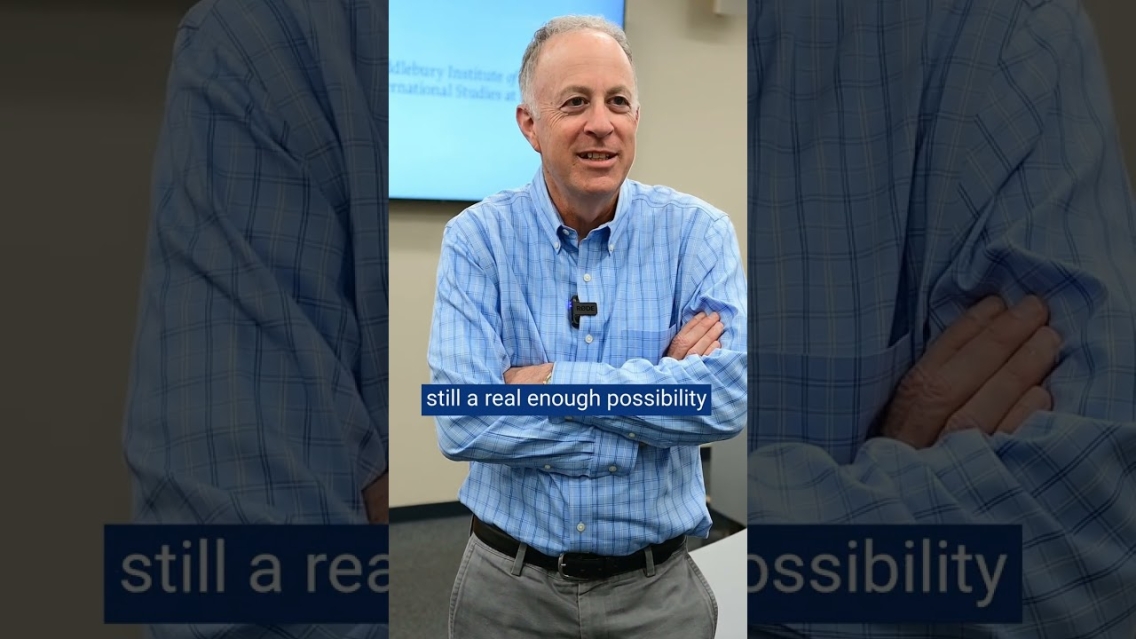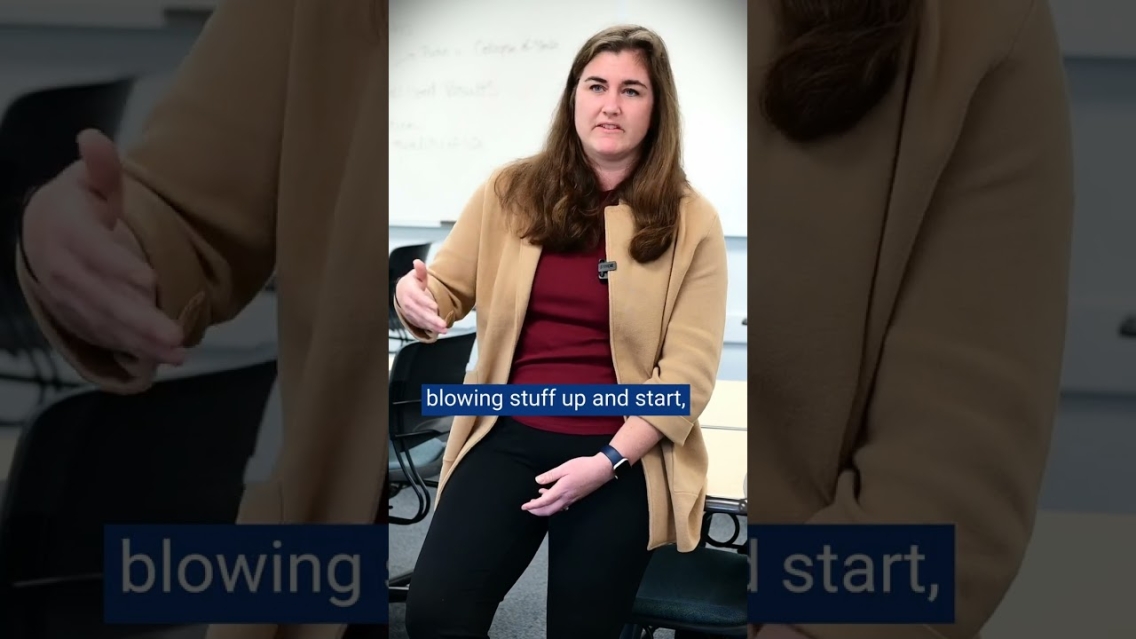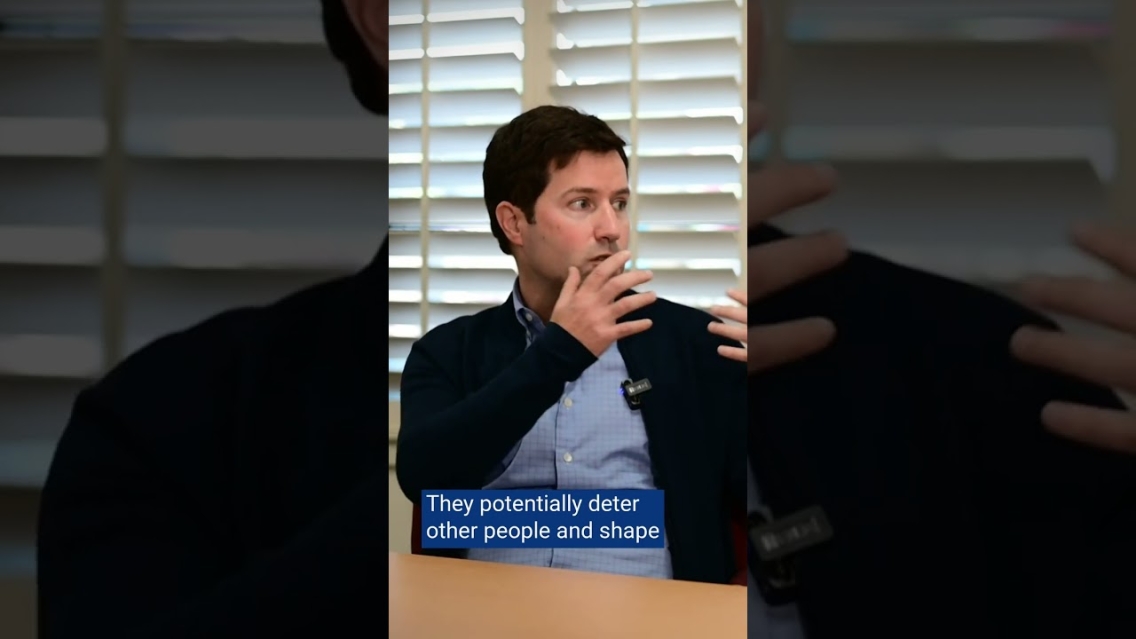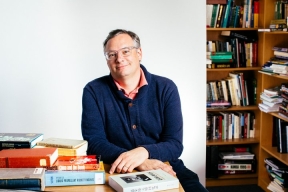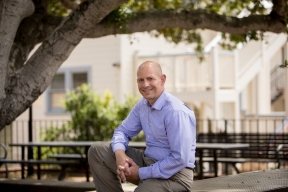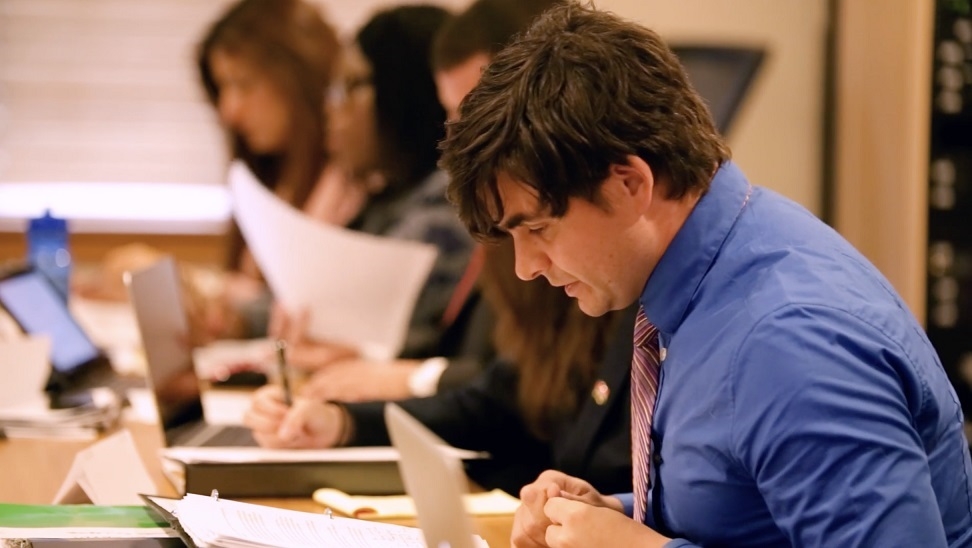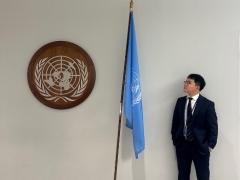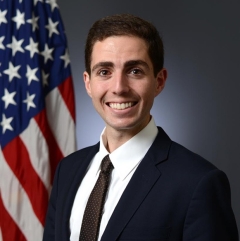Professor Jeffrey Lewis serves on the International Security Advisory Board, which advises the Secretary of State on critical issues including arms control. He is a leading authority on North Korea’s nuclear program.
Meet Jeffrey LewisMaster of Arts in Nonproliferation and Terrorism Studies
In August 2025, Middlebury’s Board of Trustees decided to close all in-person programs and two online programs at the Middlebury Institute. Spring 2026 was the last intake for this program.
Alternative Programs for Prospective Students
- The Online MS in Cybersecurity will continue to enroll students.
- Programs accepting new students.
Degree Program
Our Master of Arts in Nonproliferation and Terrorism Studies (NPTS) gives you specialized knowledge and skills that will distinguish you from other graduates. Gain professional experience through real-world projects with this STEM-designated degree.
Language Scholarship
Bridging linguistic barriers is key to a successful career in global security, so we guarantee NPTS admitted students a full scholarship (covering tuition, housing, and food) for a summer language program at the Middlebury Language Schools.
Transform Your Career
Career and Academic Advising
We integrate your career and academic advising, so you’ll be sure your coursework aligns with your career goals. The same advisor will guide you from course registration to preparing for interviews and negotiating new career opportunities.
Practical Experience
Our graduates are often hired before they complete their program, leveraging real-world projects from their classes and internships to showcase their relevant experience.
- Our research centers and initiatives offer paid graduate research assistantships, summer internships, full-time employment, and hands-on learning opportunities.
- The Professional Service Semester (PSS) helps you secure graduate-level internships, jobs, or consultancies in international organizations in the U.S. and abroad including the United Nations Office for Disarmament Affairs (UNODA) and the International Atomic Energy Agency (IAEA).
- The Institute has partnerships with organizations like the Government Accountability Office (GAO) for unique internship opportunities.
- Our Middlebury in DC office provides the entire Middlebury community with a wealth of resources.
- The annual Career Exploration Week in the nation’s capital gives you facilitated and direct access to D.C.-based employers and our alumni who help us to plan the event.
- Our large and influential alumni network in Washington, D.C., and other centers of global security are eager to mentor and help you prepare for your next steps.
Careers
You’ll be prepared to work at international organizations; government agencies, including the intelligence community (IC), think tanks, and NGOs; and a range of private-sector employers, including those in the nearby Silicon Valley tech industry. Our graduates find meaningful careers at organizations like the U.S. Department of State, INTERPOL, the International Atomic Energy Agency, Google, and Deloitte.
One Year After Graduation
Curriculum
Our interdisciplinary curriculum covers international security, science and technology, history, and regional studies, along with language studies and significant real-world opportunities for you to apply your learning. Build your expertise in:
- Policy tools for combating terrorism
- Scientific principles and technologies behind WMD
- Arms control and nonproliferation negotiations
- Open source intelligence (OSINT)
- Cybersecurity
- Financial investigation and compliance
- Area studies
- Language studies (including a full scholarship for a summer language program at the Middlebury Language Schools)
See curriculum for more details.
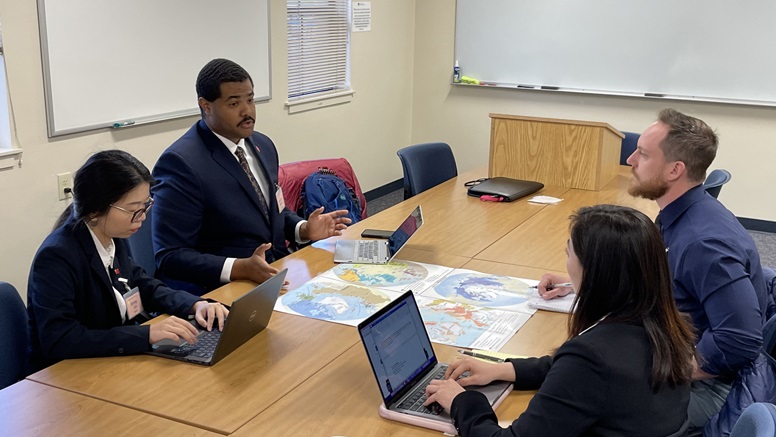
Faculty: Professors and Practitioners
Our faculty are regularly featured in the media for their groundbreaking work. They are active in international diplomatic forums, interact with government officials on current policy issues, conduct policy-oriented research, and develop new tools to monitor global threats.
While other graduate schools rely on teaching assistants, at the Institute you will have direct access to faculty and collaborate with them on research and projects. They are genuinely committed to your success and will become your mentors and colleagues throughout your education and career.
-
-
Professor Moyara Ruehsen serves on an international task force that combats money laundering. She also consults for the U.S. government, multilateral organizations, and the private sector on threat financing.
Meet Moyara Ruehsen -
Professor Jason Blazakis directs the Center on Terrorism, Extremism, and Counterterrorism, which is partnering with Meta and the White House to help communities combat radicalization through social media and the resulting violent extremism.
Meet Jason Blazakis
Working Toward a World of Change
[Jeff Knopf, Program Chair:] The subjects that we focus on in Nonproliferation and Terrorism Studies keep us interested. They’re important problems with big real-world implications. We want to make sure that there’s never a nuclear war, that new states don’t get chemical or biological weapons, that we find effective strategies for fighting back against terrorism.
[Professor speaking in class:] Conflicts and strife within the Muslim community, the Middle East communities from the very beginning. And then of course when Mohammed died, it was more conflicts over the succession.
[Jeff Knopf:] And all I have to do is read newspaper headlines in the morning when I get up and I know I have an important job and an important mission to help educate our students to work professionally in these fields.
[Student speaking in class:] We’ve really sort of been left on our own to defend ourselves. And do you think, is this the moment Jacob to be open about the fact that we have a nuclear weapon?
[Professor speaking in class:] The IDF is not the custodian of nuclear materials.
[Sarah Bidgood, student:] I’ve been able to take my Russian language skills that I came to the program with, and really build them so that I can use them in a professional setting. So now I feel like I can actually talk about real-life problems, talk about arms control issues in this very specific context here at the Institute.
[Student speaking in class:] We call all seats in the region to declare the Middle East to be a region free of nuclear testing even for those states who have not signed or ratified.
[Francisco Pareda, student:] The NPT simulation is a class where you simulate the negotiation of the nonproliferation treaty. It’s a really interesting class, you learn a lot about your country. It’s a lot of work, but the fun part is that you are interacting all the time. You’re representing a different state and representing different interests that you may or may not align with.
[Farah Al-Mousrawi, student:] It made me confident that I was able to accomplish such projects. And that I can go into the workforce loaded with the knowledge that I needed.
[Sarah Bidgood:] For me that felt like a class where I was able to take everything I’ve learned in my introductory courses that far and apply them to real-life problems. And after I completed that course, I had the chance to then go and serve as an intern at the UN Office for Disarmament Affairs in New York, where we were working on that exact treaty. So I took the skills that I learned in that seminar and applied them directly to supporting the secretariat in that endeavor.
[Jeff Knopf:] Every time I take a trip to Washington, DC, I bump into one of our alums who’s working in DC at the State Department, the Treasury Department, the Defense Department, for Congress, I mean, really have students working just all throughout the U.S. government.
[Sarah Bidgood:] The greatest thing about the Middlebury Institute is that it combines not only excellent academics but also professional opportunities.
[Jeff Knopf:] What we do is pretty unique. We have a very specialized niche. And if what we’re doing is what interests you and it’s what can help you get launched on the kind of career you want. Then I think it’s very hard to do better than to come here.
Customize Your Nonproliferation and Terrorism Studies Degree
Our flexible curriculum means you can customize your degree:
- STEM designation allows expanded career opportunities for international students and scholarships for U.S. students.
- Study a second language.
- Threat Intelligence specialization prepares you to detect, deter, and prevent cyber, financial, and strategic threats.
- Take elective courses at the Naval Postgraduate School (NPS).
- Accelerated- and advanced-entry options mean you can complete your degree in two or three semesters
- Joint BA/MA option to earn a bachelor’s and master’s in just three years through this transfer program. Fall 2025 was the last intake for this joint degree.
- Peace Corps partnership offers the Coverdell Fellows program for returned volunteers.
Check out the program details for your options.
Research and Practice
Build valuable professional experience while earning your degree. We offer paid graduate research assistantships and events at our world-renowned research centers and initiatives including:
- The James Martin Center for Nonproliferation Studies (CNS) is the largest NGO in the world devoted to curbing the spread of nuclear, biological, and chemical weapons.
- The Cyber Collaborative explores the implications of the cyber domain for national and international security and other policy concerns.
- The Mixed-Methods Evaluation, Training, and Analysis (META) Lab addresses the growing need for data-savvy professionals across a broad range of fields.
- The Monterey Initiative in Russian Studies enables students with advanced Russian language skills to professionalize their interest in Russia and Eurasia.
- The Center on Terrorism, Extremism, and Counterterrorism (CTEC) conducts in-depth research to provide private and government organizations with an understanding of and responses to terrorism threats.
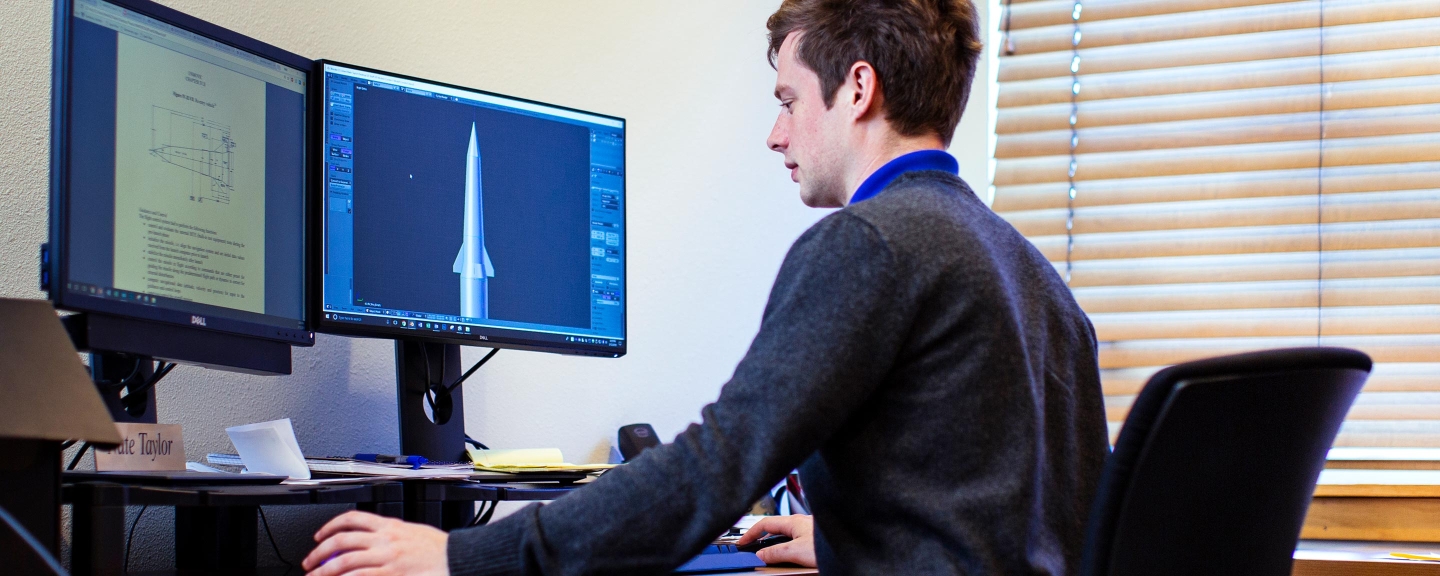
Center for Nonproliferation Studies
CNS is the leader in training the next generation of nonproliferation specialists. It is at the cutting edge of using open-source information to track proliferation in countries such as North Korea and Iran. CNS is headquartered in Monterey and has offices in D.C., and Vienna, Austria.

Center on Terrorism, Extremism, and Counterterrorism
CTEC focuses on crucial areas like threat finance and sanctions, extremist messaging and terrorist use of the Internet, and the use of special operations forces to counter violent actors. A recent $2 million gift will fund expansion of the center.
Featured News
Read AllFrom Nepal to New York City, Students Complete Practicum Projects This Fall
| by Julia Tucker
Almost 50 Middlebury Institute students are practicum this semester spending their time and gaining invaluable skills in locations all over the globe from Alaska to Kenya.
How I Got Hired: Head of the Research Section, Disarmament, Nonproliferation and Science Department, Ministry of Foreign Affairs, Japan
Sayaka Shingu landed her dream job with the Japanese Foreign Ministry where her current job responsibilities are directly related to signature courses in nonproliferation completed at Middlebury Institute.
How I Got Hired: Chief Data Officer, Office of the Undersecretary of Defense for Research and Engineering, U.S. Department of Defense
Cyrus Jabbari shares how he was able to bring together his political science background and niche skills honed at Middlebury Institute to serve as the first-ever data chief for his office.

Our graduates find rewarding careers promoting the reduction and elimination of weapons of mass destruction and countering threats of terrorism.
Career Outcomes
- 95%
- employed or continuing education within one year of graduation
- 60%
- earn $61K+ annually
- 48%
- using a second language at work

